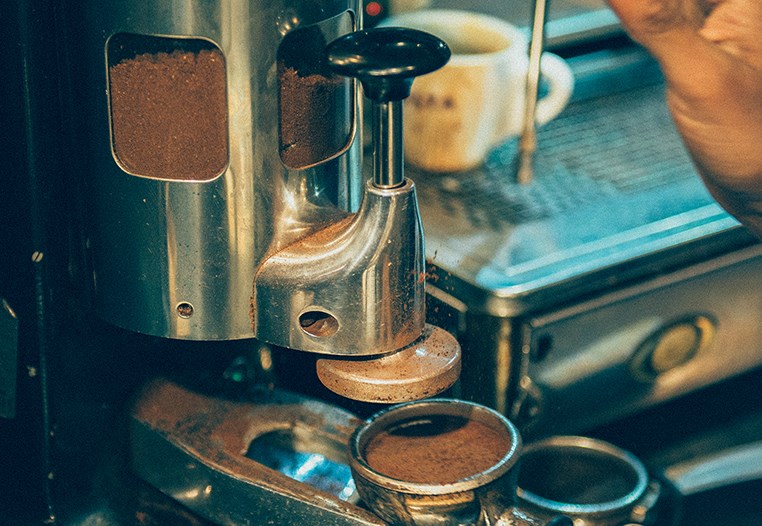Monday 13 Jul 2015
Railway stations get caffeine kick thanks to coffee recycling deal
- Region & Route:
- National
Buying a coffee in Britain’s biggest and busiest railway stations just got greener thanks to a new recycling project which is turning coffee waste into fuel and helping cut the cost of running the railway.
Following a successful trial at London’s Victoria and Waterloo stations, Network Rail has signed an agreement with bio-bean – an award-winning green energy company that recycles waste coffee grounds and converts them to advanced biofuels – that will see six of the largest railway stations in Britain all committing their coffee waste to the project.
Between them, Network Rail’s six biggest stations (Euston, King’s Cross, Liverpool Street, Paddington, Victoria and Waterloo) generate nearly 700 tonnes of coffee waste each year. Rather than sending it to landfill, this waste will now go to the bio-bean factory to be converted into over 650 tonnes of carbon-neutral biofuels for heating homes, offices and factories, saving more than 5,000 tonnes of carbon dioxide from entering the atmosphere each year. Each tonne of waste coffee grounds creates over 5,700 kilowatt hours of energy, with the 700 tonnes enough to power 1000 homes for a year.
David Biggs, managing director of property at Network Rail, said: “Millions of cups of coffee are bought in our stations every year and that number is growing as passenger numbers continue to rise. This partnership will see the waste from those purchases put to good use, creating biofuels that can be used in vehicles and to heat homes and saving more than 5,000 tonnes of carbon dioxide from entering the atmosphere. It’s good news that our stations are cutting their carbon footprint while also saving passengers and taxpayers money. The new solution is cheaper than sending the waste to landfill, which means we can invest more in making the railway better for the four million people who travel by rail each day.”
Arthur Kay, CEO of bio-bean added: “The UK generates over 500,000 tonnes of waste coffee grounds each year, costing the coffee industry almost £80 million in waste disposal fees. bio-bean recycles waste coffee grounds into advanced biofuels at an industrial scale, creating local, sustainable green energy as an alternative to fossil fuels. We are delighted to provide a cost-effective disposal solution for waste coffee grounds from these major transport hubs.”
Contact information
Passengers / community members
Network Rail national helpline
03457 11 41 41
Latest travel advice
Please visit National Rail Enquiries
Journalists
Network Rail press office - Donna Mitchell
Senior Media Relations Manager
Network Rail
020 3356 8700
07850407419
donna.mitchell@networkrail.co.uk
About Network Rail
We own, operate and develop Britain's railway infrastructure; that's 20,000 miles of track, 30,000 bridges, tunnels and viaducts and the thousands of signals, level crossings and stations. We run 20 of the UK's largest stations while all the others, over 2,500, are run by the country's train operating companies.
Usually, there are almost five million journeys made in the UK and over 600 freight trains run on the network. People depend on Britain's railway for their daily commute, to visit friends and loved ones and to get them home safe every day. Our role is to deliver a safe and reliable railway, so we carefully manage and deliver thousands of projects every year that form part of the multi-billion pound Railway Upgrade Plan, to grow and expand the nation's railway network to respond to the tremendous growth and demand the railway has experienced - a doubling of passenger journeys over the past 20 years.
Follow us on Twitter: @networkrail
Visit our online newsroom: www.networkrailmediacentre.co.uk

